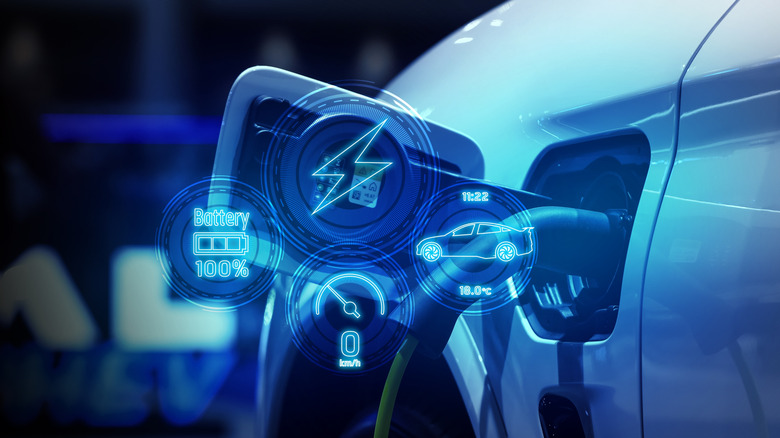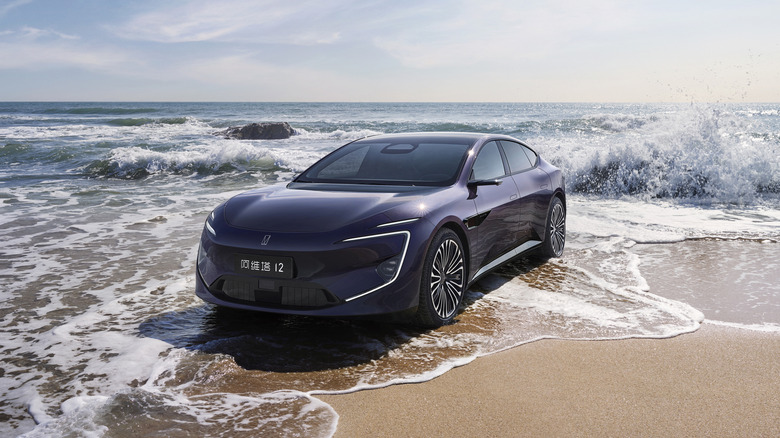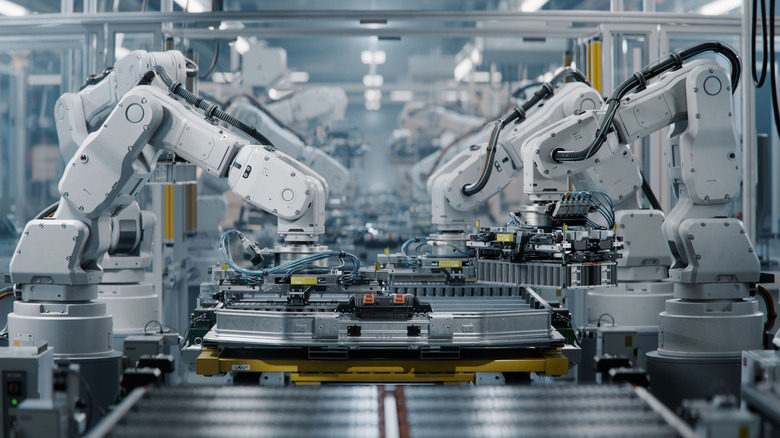This New EV Battery Patent Claims Extreme Range & Ultra-Fast Charging (5 Minutes Flat)
As electric vehicles continue to be seen more often on public roads, manufacturers across the world are relentlessly pushing to find the next great leap in battery technology. That is more clear than ever when you begin to look at the technological innovations Chinese brands like BYD and Huawei have announced. Specifically, Chinese tech company Huawei has recently revealed a patent for an all-new electric vehicle battery system that they claim offers up to nearly 1,900 miles of range and can be fully charged in five minutes.
While Huawei may not currently produce batteries for their electric vehicles, that doesn't mean the brand isn't looking to expand. However, this new patent claims to be able to hold energy densities up to 500 watt-hours per kilogram, which is nearly three times what typical lithium-ion batteries have. Of course, for now, it's just a patent. This battery may never actually come to fruition or get the same performance Huawei is claiming.
The lithium-ion batteries that are found in a majority of electric vehicles in North America have a current maximum range of just over 400 miles. The EV with the longest range is the Lucid Air, which can travel 410 miles on a single charge. The largest EV battery, which is found in the GMC Hummer EV, weighs nearly 3,000 pounds and only provides around 380 miles of driving range.
Details of the Huawei battery
Instead of using the standard lithium-ion battery that has become the norm stateside, Huawei's patent is using a lithium-sulfide battery. The sulfide-based battery in the patent is mated with a lithium-metal anode, this allows for better conductivity and allows the battery to reach 500Wh/kg.
Huawei states in their patent that they then "dope" the battery with nitrogen from cyanide. This is to prevent build-ups that can cause the battery to fail. The additions to the battery are to help maintain lower temperatures and help decrease the time it takes the battery to be fully charged.
According to TopGear, if Huawei scientists are able to actually reach the 500Wh/kg for their battery and consumption rates remain similar to what current rates are, the battery would likely have to weigh a ton. That would still be lighter than the Hummer EV's battery, though about 1.5 times as big as the battery in the Tesla Model S.
Huawei still has a number of benchmarks to reach before this patent is seen to fruition, including high production costs. Electric vehicle batteries are extensive to research, test, and create. When companies begin using new technologies, those costs can skyrocket.
The future of electric vehicle batteries
China-based Huawei isn't the only global manufacturer looking toward the electrified future, as even iconic brands like General Motors begin experimenting with next-generation battery technology. General Motors has experimented with sodium-ion based batteries, which have a lower energy density when compared to lithium-ion batteries and eliminate the need for rare earth materials.
This isn't the only potential next-gen battery being researched. In 2023, Toyota announced a similar breakthrough — a new battery that can be fully charged in under 10 minutes and offers a range of 745 miles. Toyota's battery utilizes a solid-state design that will offer a longer life than comparable lithium-ion batteries.
Ford has also begun experimenting with different forms of EV batteries, including a lithium manganese rich battery they claim will offer longer ranges. Ford also claims that the lithium manganese rich batteries will be more affordable than current lithium-ion batteries.
The biggest issue with the creation of electric vehicles and their batteries is the reliance on rare earth metals. As stated in their name, rare earth metals are not abundant and can cause severe environmental and health concerns when they are mined. As electric vehicles continue to become more popular and the need for these rare earth metals are increased, automakers will likely have to look elsewhere for many of their electric vehicle engine components.


